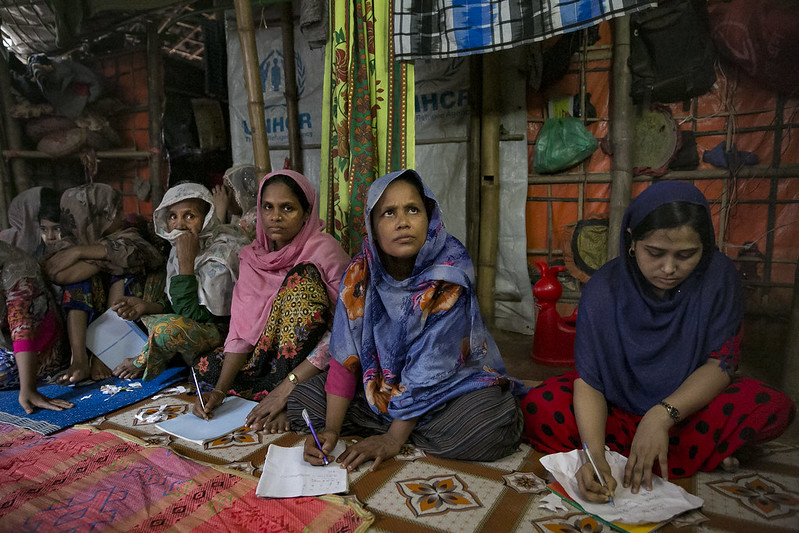Voluntary Service Overseas Helps People in Developing Nations
 While many organizations work with people in developing nations experiencing poverty and other hardships, Voluntary Service Overseas works in a way that makes them stand out from the crowd. This is because it helps people in developing nations not by merely providing aid but by working closely with people living in poverty and members of marginalized groups to determine what is preventing them from being able to meet their needs and breaking down these barriers.
While many organizations work with people in developing nations experiencing poverty and other hardships, Voluntary Service Overseas works in a way that makes them stand out from the crowd. This is because it helps people in developing nations not by merely providing aid but by working closely with people living in poverty and members of marginalized groups to determine what is preventing them from being able to meet their needs and breaking down these barriers.
Three-Point Strategy
Voluntary Service Overseas supports people in developing nations in three key ways. First, with the help of local and international volunteers, the organization collaborates with communities to design programs that identify specific needs. This approach allows volunteers to build strong relationships with community members.
The second step focuses on helping locals develop the skills and knowledge needed to improve their lives. As a result of learning new skills, community members often become volunteers themselves and carry on the organization’s work long after they have left, which is the program’s final step.
Rwanda and Bangladesh
Voluntary Service Overseas helps people in developing nations across the globe. In Bangladesh, the organization provides education for Rohingya refugees ages 3 to 5, teaching them the basics of literacy and numeracy to give them a strong start on the path to education. Older children also benefit from the program through 12 learning centers that offer education and a much-needed respite from the challenges of living in a refugee camp. The program has been tremendously successful, reaching more than 6,600 refugee children ages 3 to 14.
Voluntary Service Overseas also supports marginalized groups in Rwanda, focusing on Deaf young people. Volunteers provide lessons in Rwandan sign language and Deaf culture to 200 local health care professionals, enabling them to offer vital sexual and reproductive health information to 250 Deaf young people. As sexual and reproductive health information becomes more accessible, the overall health of both hearing and Deaf communities improves. Health care professionals also benefit from the program by better understanding how to communicate with and treat Deaf patients. This reduces miscommunication and language barriers, enhancing the quality of care they provide to members of the Deaf community.
Cambodia
Cambodia is another country where Voluntary Service Overseas helps people in need. Through its GREEN program, the organization helps protect the fishing industry in the region’s Tonle Sap Lake from adverse weather, deforestation, domestic and industrial sewage and other factors affecting water quality and the habitat of native fish. This is achieved by educating locals on more environmentally friendly ways of living through theater and outreach from local volunteers.
The organization also works in collaboration with local businesses by helping them establish alternative waste management strategies that have less of an impact on the lake’s cleanliness. Local schools and families are also educated on these strategies, allowing the future generation to continue protecting the environment when they enter the world of work. This program has had a positive impact on the ecosystem of Cambodia, with 70% of families adopting more environmentally friendly ways of living and 50 green businesses headed by women and young people being established.
Closing Remarks
Voluntary Service Overseas helps people in developing nations through various initiatives. The organization provides education for Rohingya refugees in Bangladesh, teaches Rwandan health care workers how to assist Deaf young people with sexual and reproductive health and educates Cambodian individuals and businesses on environmentally friendly practices and waste management. These strategies significantly improve the lives of people in developing nations.
– Sue-Joyce Headon
Sue-Joyce is based in Liverpool, UK and focuses on Good News and Celebs for The Borgen Project.
Photo: Flickr
